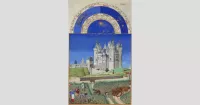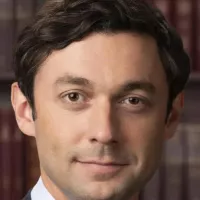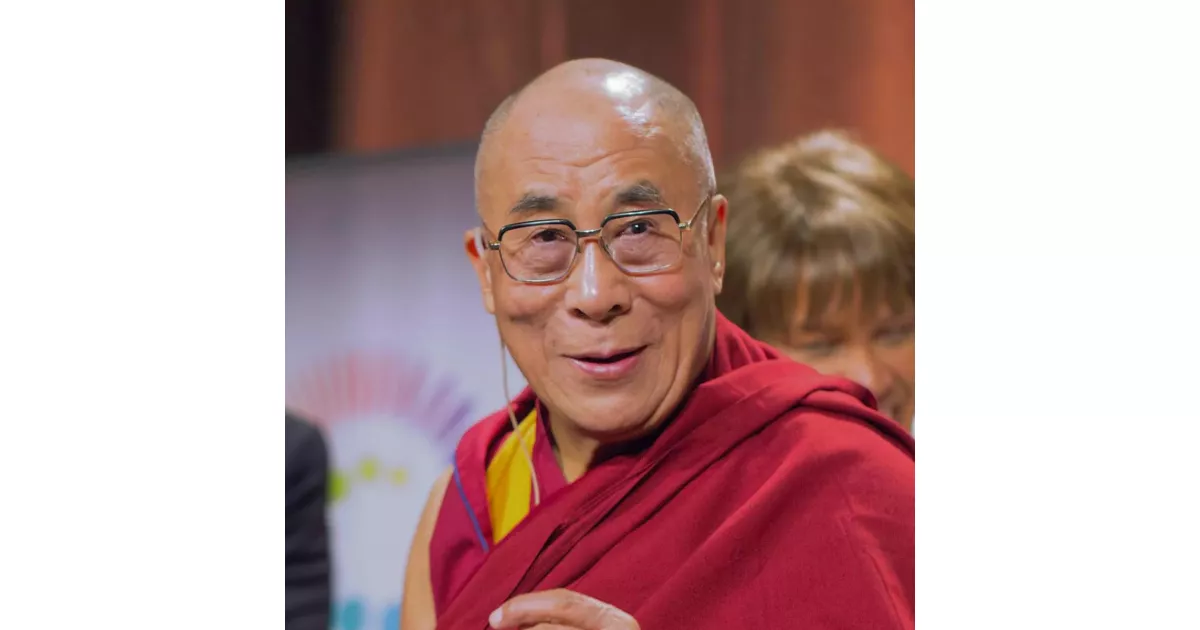The Dalai Lama is the title given to the head of the Gelug school of Tibetan Buddhism. The title, meaning "Holiness Knowing Everything Vajradhara Dalai Lama," was first bestowed upon Sonam Gyatso in 1578 by Altan Khan. Sonam Gyatso became the 3rd Dalai Lama, and the title was posthumously awarded to the first two tulkus in his lineage. The Dalai Lama lineage represents a significant figure in Tibetan Buddhism and, historically, held political influence.
1904: Escape the British invasion
In 1904, the 13th Dalai Lama was in exile to escape the British invasion.
1909: Escape the British invasion
From 1904–1909, the 13th Dalai Lama was in exile to escape the British invasion.
1910: Escape from a Chinese invasion
From 1910–1912, the 13th Dalai Lama was in exile to escape a Chinese invasion. After his return from exile in India and Sikkim during January 1913, he assumed control of foreign relations and dealt directly with foreign officials.
1912: Escape from a Chinese invasion
From 1910–1912, the 13th Dalai Lama was in exile to escape a Chinese invasion. After his return from exile in India and Sikkim during January 1913, he assumed control of foreign relations and dealt directly with foreign officials.
1912: Upholding Tibetan independence
From 1912 to 1950, the 13th Dalai Lama upheld de facto Tibetan independence from China.
1912: Declaration of Independence by the 13th Dalai Lama
In 1912, following the collapse of the Qing dynasty, the 13th Dalai Lama declared that Tibet's relationship with China had ended and proclaimed Tibet's independence.
1912: Collapse of the Qing dynasty
In 1912, following the collapse of the Qing dynasty, the government in Tibet was reconstituted with the Dalai Lama presiding over a Kashag, reinvesting him with temporal power.
1913: Publication of the Tibetan Declaration of Independence
In 1913, the Great Thirteenth Thubten Gyatso published the Tibetan Declaration of Independence for the entirety of Tibet.
1933: Death of the 13th Dalai Lama
The 13th Dalai Lama died in 1933 after instituting measures to modernize Tibet.
July 1935: Birth of the 14th Dalai Lama
On July 6, 1935, the 14th Dalai Lama was born on a straw mat in a cowshed to a farmer's family in a remote part of Tibet.
February 1940: Approval to exempt Lhamo Thondup from the lot-drawing process
In February 1940, the Central Government approved the request to exempt Lhamo Thondup (Chinese: 拉木登珠) from the lot-drawing process to become the 14th Dalai Lama.
1949: Nepal references Tibet as an independent state when submitting an application to join the UN
In 1949, the Kingdom of Nepal referenced Tibet as an independent state when submitting an application to join the UN.
November 1950: Enthronement of the 14th Dalai Lama
On 17 November 1950, the 14th Dalai Lama was formally enthroned during the Battle of Chamdo with the People's Republic of China.
1950: Upholding Tibetan independence
From 1912 to 1950, the 13th Dalai Lama upheld de facto Tibetan independence from China.
1951: Ratification of the Seventeen Point Agreement with China
In 1951, the 14th Dalai Lama ratified the Seventeen Point Agreement with China, which outlined the terms for Tibet's incorporation into the People's Republic of China.
1951: Pressure to accept the Seventeen Point Agreement
In 1951, the Dalai Lama and the Tibetan government were pressured into accepting the Seventeen Point Agreement for the Peaceful Liberation of Tibet.
April 1959: Issuance of statement regarding the Seventeen Point Agreement
On 18 April 1959, the Dalai Lama issued a statement that in 1951, the Dalai Lama and the Tibetan government were pressured into accepting the Seventeen Point Agreement for the Peaceful Liberation of Tibet.
1959: Seeking refuge in India
Following the failed 1959 Tibetan uprising, the 14th Dalai Lama sought refuge in India, where Prime Minister Jawaharlal Nehru allowed him and the Tibetan government officials to enter. The Dalai Lama has since lived in exile in McLeod Ganj, Himachal Pradesh.
1959: Escape from Lhasa during the Tibetan uprising
In 1959, Tenzin Gyatso, the 14th Dalai Lama, escaped from Lhasa during the Tibetan uprising and went into exile in Dharamshala, India.
1959: 14th Dalai Lama fled to India
In 1959, the 14th Dalai Lama fled to India, marking the end of the Dalai Lama lineage's continuous rule over Tibet for 317 years.
1959: Revocation of the Seventeen Point Agreement
In 1959, the 14th Dalai Lama revoked the Seventeen Point Agreement with China.
1959: Reinstatement of the Kashag and National Assembly
Until 1959, the Kashag and the Tsongdu or National Assembly were reinstated, and, presided over by a Dalai Lama or his regent, ruled without further interruption.
1969: Dalai Lama's statement on the future of the Dalai Lama institution
In 1969, the 14th Dalai Lama stated that Tibetans should decide whether the institution of the Dalai Lama should continue. He also suggested that he would not be reborn in a country controlled by the People's Republic of China.
1974: Rejection of Tibetan independence
In 1974, the 14th Dalai Lama rejected calls for Tibetan independence, shifting away from supporting the Tibetan independence movement.
1995: Selection of the 11th Panchen Lama and subsequent abduction
In 1995, the Dalai Lama chose the 11th reincarnation of the Panchen Lama without using the Golden Urn, while the Chinese government insisted on its use, leading to two rival Panchen Lamas. Gedhun Choekyi Nyima, chosen by the Dalai Lama, was abducted by the Chinese government shortly after and has not been seen in public since 1995.
2001: Cession of power to elected parliament of Tibetan exiles
In 2001, the 14th Dalai Lama ceded his partial power over the government to an elected parliament of Tibetan exiles.
2005: Agreement that Tibet is part of China
Since 2005, the 14th Dalai Lama has publicly agreed that Tibet is part of China and no longer supports separatism.
September 2007: Chinese government regulation on high monks
In September 2007, the Chinese government declared that all high monks, including the selection of the 15th Dalai Lama, must be government-approved after the death of Tenzin Gyatso. The Dalai Lama alluded to a possible referendum to determine his successor.
2013: Popularity as world leader
By 2013, the 14th Dalai Lama became one of the two most popular world leaders.
2014: Tibet wants to be part of China
In 2014, the Dalai Lama said that Tibet wants to be part of China but China should let Tibet preserve its culture and script.
2016: Tibet wants to be part of China
In 2016, the Dalai Lama said that Tibet wants to be part of China but China should let Tibet preserve its culture and script.
2018: Comments on Europe and refugees
In 2018, the Dalai Lama said that "Europe belongs to the Europeans" and that Europe has a moral obligation to aid refugees, later adding that Europe should receive, help, and educate refugees but that they should ultimately return to develop their home countries. He also made comments that a female Dalai Lama "should be more attractive".
2019: Remarks on his successor
In 2019, the Dalai Lama spoke out about his successor, saying that after his death he is likely to be reincarnated in India. He also warned that any Chinese interference in succession should be considered invalid.
2020: Statements on Tibetan independence and China
In 2020, the Dalai Lama said he did not support Tibetan independence and hoped to visit China as a Nobel Prize winner. He stated his preference for a republic within the People's Republic of China, where ethnic minorities can live in harmony.
2021: Praising India as a role model for religious harmony
In 2021, the Dalai Lama praised India as a role model for religious harmony in the world.
2023: Controversy over video in Dharamshala
In 2023, a video surfaced showing the Dalai Lama in Dharamshala, India, asking a boy for a kiss on the lips and then to suck his tongue, leading to controversy and a subsequent apology from the Dalai Lama, who expressed regret and claimed he "often teases people he meets in an innocent and playful way, even in public and before cameras" and "regrets the incident".
July 2, 2025: Dalai Lama's statement on the continuation of the institution of Dalai Lama
On July 2, 2025, the Dalai Lama released a statement affirming that the institution of the Dalai Lama will continue. He also stated that members of the Gaden Phodrang Trust have exclusive responsibility for recognizing his successor.
July 6, 2025: Dalai Lama to reveal plan for deciding on his successor
On July 6, 2025, the Dalai Lama plans to reveal his plan for deciding on his successor on his 90th birthday. He has suggested that he can name an adult as his next incarnation, and that this successor could immediately be taken seriously.
July 2025: 90th birthday celebration
In July 2025, the Dalai Lama is scheduled to celebrate his 90th birthday. Before the celebration, he confirmed that the Gaden Phodrang Trust will supervise the process of appointing a successor after his death.
Mentioned in this timeline

Barack Obama the th U S President - was the...
The United States of America is a federal republic located...
India officially the Republic of India is a South Asian...
China officially the People's Republic of China is an East...
Nepal is a landlocked country in South Asia predominantly located...

September is the ninth month of the year in the...
Trending

2 hours ago Maya Hawke and Christian Lee Hutson celebrated wedding with Stranger Things cast present.
2 hours ago Wizz Air Launches New Larnaka-Barcelona Flights, Boosting Tourism for Cyprus and Spain.

2 hours ago Jon Ossoff criticizes Trump, speech goes viral, fueling 2028 'Front Runner' speculation.
4 hours ago ANTM's controversies are revealed in a new Netflix documentary, with Tyra Banks facing criticism.
4 hours ago EU monitors Albania's legal changes: Concerns raised over Rama's SPAK amendment.
5 hours ago Arkansas State Police sees 29% drop in high-speed pursuits due to law changes.
Popular

Jesse Jackson is an American civil rights activist politician and...
Randall Adam Fine is an American politician a Republican who...

Pam Bondi is an American attorney lobbyist and politician currently...

Barack Obama the th U S President - was the...

Martin Luther King Jr was a pivotal leader in the...

Ken Paxton is an American politician and lawyer serving as...
